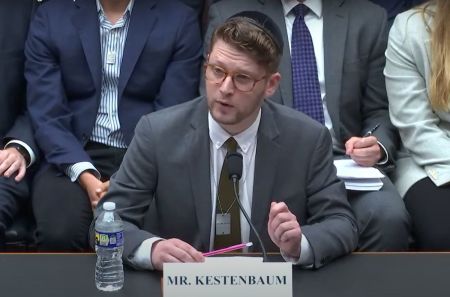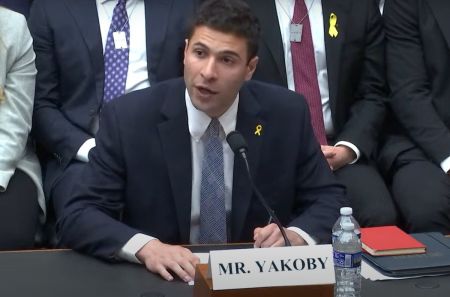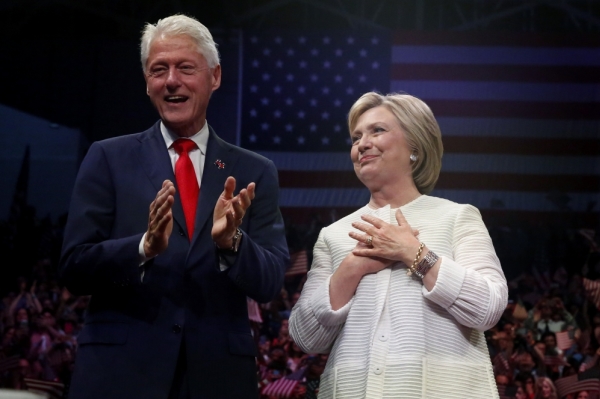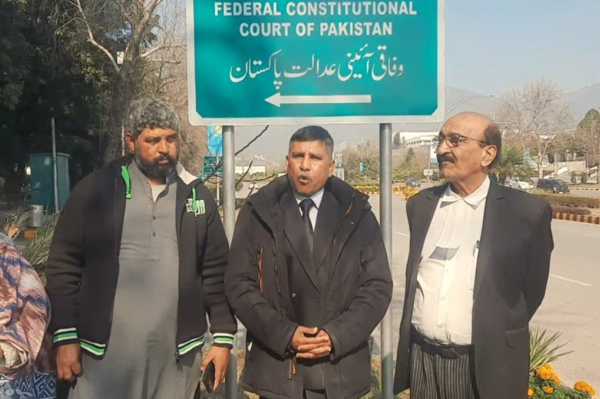Jewish students suing their universities want colleges held accountable for antisemitism

A Jewish student who says he was threatened by a Harvard employee wielding a machete testified during a congressional hearing this week addressing allegations of antisemitism on college campuses.
The House Judiciary Subcommittee on the Constitution and Limited Government held the hearing Wednesday to address reports of antisemitic incidents amid a series of anti-Israel protests on college campuses throughout the country, many of these protests included demonstrators setting up encampments on university property, prompting several college leaders to seek help from law enforcement.
Shabbos Kestenbaum, a graduate student at Harvard University in Massachusetts, and Eyal Yakoby, an undergraduate student at the University of Pennsylvania, testified that their respective universities are not safe for Jewish students and are suing the universities for failing to address hatred of Jews.
Harvard University and the University of Pennsylvania did not immediately respond to The Christian Post’s requests for comment.
During his opening testimony, Kestenbaum said his family has ties to Germany, and that the Nazis arrested his great-great-grandfather, Rabbi Yosef Breuer, while Kestenbaum’s great-great aunt hid under the bed. On the night of Kristallnacht, a wave of antisemitic violence the Nazis carried out against the Jews, the family’s historic Breuer synagogue burned to the ground.
“My story of antisemitism, therefore, is deeply painful, and it is deeply personal,” Kestenbaum said, warning the subcommittee that Kristallnacht did not begin with things like “book burnings and broken windows.”
“Kristallnacht began with a pernicious ideology that swept across German society,” the Harvard graduate student said. “Kristallnacht began with the acceptance and normalization of Jew-hatred.”
The graduate student recalled hundreds of Harvard students and faculty members setting up an anti-Israel encampment on the first day of Passover, demanding that the university “divest” from the Jewish state of Israel. Kestenbaum said the demonstrators “cheered” after replacing the American flag on campus with a Palestinian one, saying they chanted about “globalizing the intifada.”
Kestenbaum contends that the protesters established their “own rule of law on campus” by appointing people to serve as “safety marshals,” who would follow Jewish students like him. The “safety marshals” would often record Jewish students like Kestenbaum and monitor their movements.
The student recounted that he tried to contact Harvard’s administrators many times to discuss these issues, but nothing was done. Harvard agreed to meet with the students and establish initiatives such as a Palestinian studies department as part of the university's negotiations with the protesters behind the encampment.
“I am a Jewish student and have thus far been unable to meet with President Alan Garber or my dean, Marla Frederick, to discuss the pervasive anti-Semitism on campus,” Kestenbaum said. “Only those who call for the ethnic genocide of Jews, violate school policy, and send mask thugs to follow Jews are given the honor of having a seat at the table.”
At one point during the hearing, Kestenbaum spoke about the Harvard employee who demanded the graduate student debate him about whether the Jews were responsible for the Sept. 11 terrorist attack against the United States. In a video created by the same person, the employee held up a machete, threatening Kestenbaum.
“To this day, Harvard has not yet acknowledged to me what they will do to protect me and what they have done to discipline the staff member,” the student testified.

Yakoby filed a lawsuit against his university, stating during his testimony that "Bigotry, violence, and harassment have become part of Penn's daily syllabus."
The Jewish student recalled an anti-Israel encampment that was allowed to remain on campus for weeks and how the demonstrators would chant things like "Al-Qassam make us proud."
Al-Qassam is the armed wing of Hamas, the terrorist group that killed at least 1,200 people in a surprise attack against Israel on Oct. 7. In response to the invasion, Israel launched an offensive to eradicate the terror group and secure the release of the over 240 individuals it took hostage. The Hamas-controlled Gaza Health Ministry says that over 35,000 people have been killed since the war began, but those figures don't differentiate between combatants and survivors. The United Nations says about 52% of those killed have been women and children.
"While students walk to class, they are met with masked individuals screaming at them, 'Go die,' 'You are Hitler's children,' and 'nazis,'" Yakoby said. "One member of the encampment wore a sweatshirt with two rats surrounding a Jewish star."
"This is not just an issue for Jews — it is an issue for all Americans," the undergraduate student said. "On Oct. 7, Israel was physically attacked, but ideologically, every free country had been infiltrated. Because the same people who wave the flags of Hamas are burning the flag of the United States."
As Yakoby recalled, the University of Pennsylvania's president declared the anti-Israel encampment violated the school's policies within 24 hours of its assembly, but the encampment remained. Four days before the anti-Israel camp was disbanded, the university released a statement saying that it had heard reports of demonstrators planning to escalate the situation, which included occupying buildings.
"To be clear, the university knew about documents circulating within the encampment having instructions for violence, there were terroristic threats, and they waited at least four days to do something," Yakoby said. "On top of that, once the encampment was cleared, the university found weapons within the encampment."
Near the end of the hearing, Kestenbaum asserted that Jewish institutions should not allow Harvard recruiters "within 50 feet of their school" until the university implements policies to hold people accountable for antisemitism.
"It's not that Jewish students don't feel safe at Harvard," he said. "Jewish students are not safe at Harvard."
Likewise, when asked the same question about whether he would advise a Jewish high school senior to attend the University of Pennsylvania, Yakoby urged it to enforce its rules.
"Unless the university enforces their own rules between now and graduation, then no Jewish student, no one that doesn't support the pro-terror encampments that are happening, should step foot on Penn's campus," he said.
Samantha Kamman is a reporter for The Christian Post. She can be reached at: samantha.kamman@christianpost.com. Follow her on Twitter: @Samantha_Kamman





















